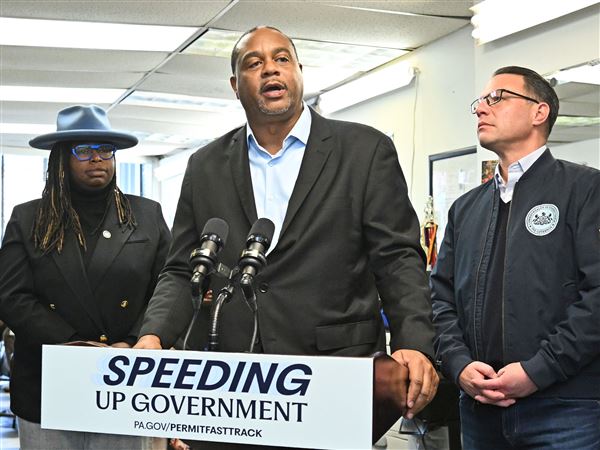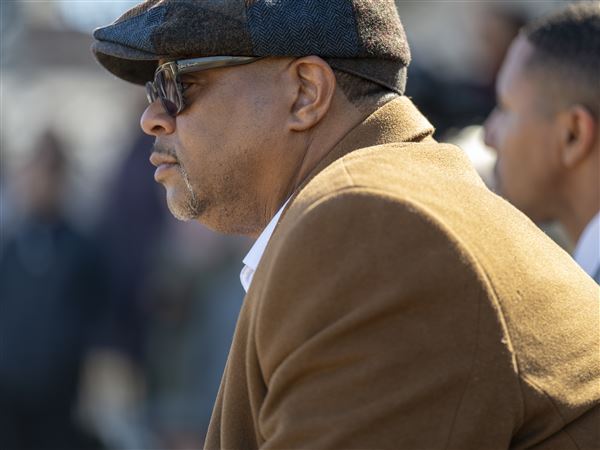I didn’t buy my first stock until I was 30. Before I discovered the eTrade app, I had no idea how one even did such a thing. I assumed that all stock-buyers had some person in a crowded Wall Street-ballroom yelling “Buy shares of orange juice!” with ticker-tape erupting from every surface.
Stock-buying felt electrifying — one of my first tastes of rich-people behavior. I used up a large portion of my quite meager savings, accrued from almost a decade as a university lecturer, to buy two shares of what was then known as Google worth $1,000 each.
The next day, the stock price rose a bit. My investment was already paying off. It was a fun, dopamine-inducing feeling — not unlike spinning the roulette wheel in a casino. I was like the Wolf of Wall Street, screaming and dancing in my desk chair, wishing I had ticker-tape of my own.
Give me a second
I still sometimes think of myself as a starving artist, even though time, job opportunities and marriage to a software engineer have changed those descriptors.
When my parents came to the United States in the early 1980s, in their 20s, they were not literate in the ways of America. For example, after my mother got cancer, they chose the best oncologist they could, not fully understanding insurance and the concept of in-network providers. Her half-decade worth of treatments ended up costing my parents more than the value of their home.
My mother, now in her late 60s and in remission for over 20 years, often jokes that they need classes to better teach people how things work. “Ignorance is bold,” she says, and when someone doesn’t have institutional knowledge, the cost of being bold can be steep.
When I got my first job, I had to sign up for a 401(k). I’d never even heard of such a thing, and neither had my small-business-owning parents. I declined to contribute to it, thinking that cash in hand had more value, and it wasn’t until I was married, a decade later, that my husband sat me down and gently explained why I needed to save for retirement.
Higher than the Empire State
Financial literacy helps create wealth. “Use whatever extra you have to invest in either stocks or real estate,” a speaker on a panel about making money as an artist said at a writing conference years ago. “Artists can build wealth too.” I wrote this in my journal, committing the phrase to memory.
In my lifetime, I’ve won two $10,000 writing prizes. They were extraordinarily life-changing. I used one to help put the downpayment on our house, changing our status from renters to homeowners, and the other as a downpayment for a writing studio in Sharpsburg (a room of my own, if you will).
I understand how lucky I am, and while some of that luck can be ascribed to my work, plenty of talented people have never won a cash prize, and even the ones who have often have to tend to their debts and responsibilities before they’re able to invest. Few are building equity.
We tend to ascribe financial success to intelligence. But I know plenty of high-intelligence-quotient individuals trapped in cycles of poverty. Many of them feel they can never get ahead when they’re just getting by. How can someone buy stock if they can barely pay for groceries?
We are young
“It takes capital to build capital,” one of my college professors used to intone. It also takes a certain amount of knowledge, and knowledge is separate from intelligence. One can be quite smart and simply not have access to certain information.
Right now, that information is mostly kept by older Americans. If the President of the Federal Reserve Bank of Atlanta is to be believed, and we're about to step into a contracting economy, I'm worried about young Americans.
They have the least financial literacy — and financial power — of any living generation. Investors under the age of 35 hold only 1.4% of the stock market, according to a 2021 Survey of Consumer Finances by the Federal Reserve.
If we’re not careful, an entire generation of financial prosperity will be lost in this country, where 10% of investors already own 93% of the wealth in the stockmarket. Widening the gap will only hurt our economy in the long-run.
It’s not just about hard work or intelligence, it’s about know-how, and not everyone has a financially literate parent or spouse willing to pass on their knowledge. With help from my husband, I’ve increased my portfolio little-by-little, buying a few things here and there, diversifying my relatively small investments, and not without the occasional set-back.
My mom has now started giving me money to invest for her. “Buy me an Apple,” she’ll text me, ticker-tape flowing in our imaginations. Still, my returns in the last decade have been decent, enough to pay for a small family vacation every so often.
I try not to sell too much — it’s fun to see it grow. There are some thrills that never go away.
Adriana E. Ramírez’s previous column was “We need more Black teachers.”
Correction, posted March 26: An earlier version of this column incorrectly identified the President of the Federal Reserve Bank of Atlanta.
First Published: March 24, 2025, 9:43 p.m.
Updated: March 25, 2025, 1:25 p.m.
















